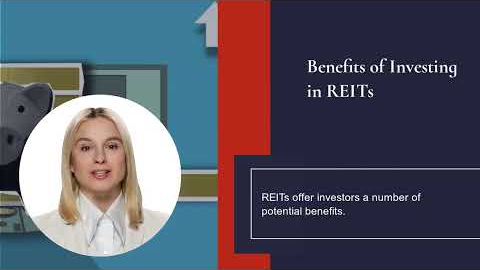What is a Real Estate Investment Trust (REIT)?
3 View
Share this Video
- Publish Date:
- February 8, 2023
- Category:
- What Are Reits
- Video License
- Standard License
- Imported From:
- Youtube
Tags

A real estate investment trust (REIT) is an investment vehicle that owns, operates, or finances income-producing real estate. Investors in a REIT receive regular income in the form of dividends from the profits generated by the real estate investments. REITs may be publicly traded on a stock exchange or privately owned, and can invest in a variety of property types, from office buildings and apartments to warehouses and hotels.
REITs can be divided into two broad categories private and publicly traded. Publicly traded REITs must comply with the Securities and Exchange Commission (SEC) and are listed on a stock exchange, while private REITs are not regulated by the SEC and are not traded on an exchange or through a broker.
REITs offer investors a number of potential benefits. For one, they offer access to a diversified portfolio of real estate investments, so its not necessary to buy and manage individual real estate properties. Additionally, REITs are generally considered safe investments, since their portfolios are regularly appraised and carefully managed. Finally, REITs offer the potential for higher yields than other types of investments, since their dividends come from the profits generated by their real estate holdings.
While REITs offer investors the potential for higher yields, they also come with certain risks. As with any investment, there is the risk of loss, and the prices of REITs can be volatile. There is also the risk that real estate values could fall, leading to a drop in the value of the REITs portfolio. Finally, there is a risk that the REIT may not be able to generate enough income to pay its investors a dividend.














